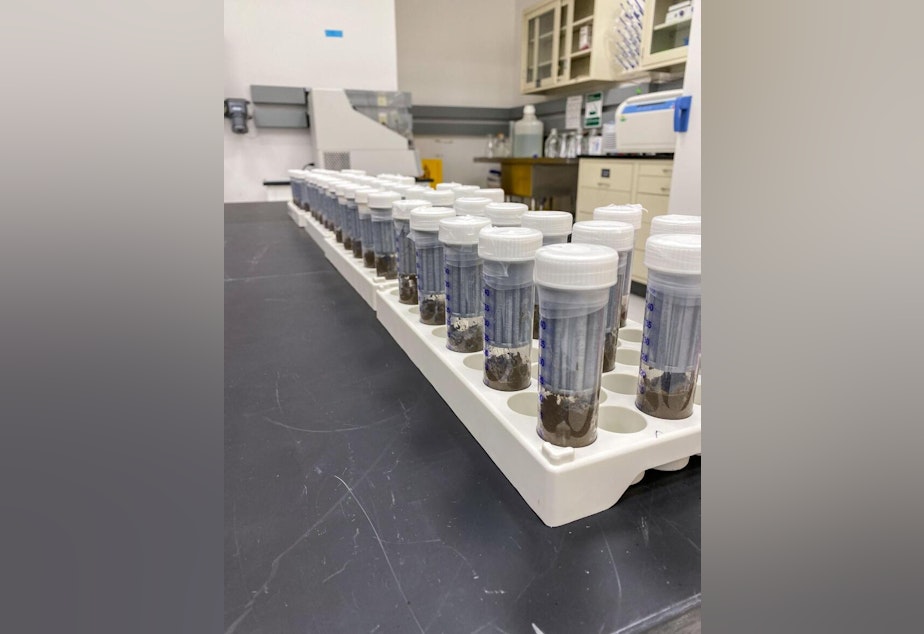Space gets dirty, thanks to the Yakima Valley

If all goes according to plan, soil from Washington’s Yakima Valley could end up in space next week.
Scientists hope to use soil collected from a field in Prosser, Washington — and the bacteria growing inside the soil — to learn more about growing crops in space.
Scientists from Pacific Northwest National Laboratory will send test tubes filled with soil and eight different types of bacteria to the International Space Station on June 10.
Janet Jansson, a scientist with Pacific Northwest National Laboratory, says microbes in the soil are key to supporting plant growth on Earth.
“Soil microbes are the hidden players of life support systems on Earth," Jansson said.
Sponsored
For the three months the soil stays in space, scientists back home will conduct the exact same experiment.
Jansson says that way, scientists will be able to compare the differences in how the bacteria grew. She says bacteria in space will experience microgravity, altered carbon dioxide levels, and radiation levels not found on Earth.
The soil will hitch a ride to the Space Station as part of a SpaceX resupply mission, scheduled to take off on June 10.
